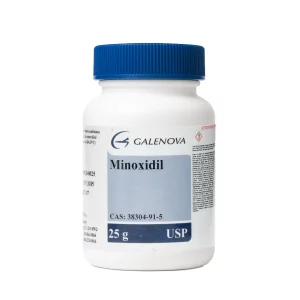Your cart is empty.
Your cart is empty.
Ozempic (semaglutide) is a medication that has gained significant attention for its effectiveness in treating type 2 diabetes and aiding in weight management. It belongs to a class of drugs known as GLP-1 receptor agonists. While Ozempic’s dosage primarily focuses on glycemic control and weight loss, and some studies highlight Ozempic’s respiratory benefits, there’s a growing interest in understanding how it may also influence mental well-being, mood, and cognitive health. This article explores the scientific links between Ozempic and mental health and examines emerging data.

Metabolic disorders like obesity and diabetes are often linked to mood disorders such as depression and anxiety. This connection underscores the relationship between metabolic health and mental well-being. Factors like inflammation can disrupt brain function, while blood sugar dysregulation can lead to energy fluctuations, impacting emotional stability.
Additionally, metabolic dysfunction can affect the gut-brain axis, which connects gut health to brain function, altering mood. Improving metabolic function positively influences emotional and cognitive health.
Ozempic, a GLP-1 receptor agonist, mimics the action of the natural GLP-1 hormone. It primarily targets areas of the brain involved in satiety and appetite regulation within the central nervous system. However, GLP-1 receptors are also present in other brain regions that influence neurotransmitter balance, mood regulation, and cognition.
Preliminary animal studies have suggested that GLP-1 activation can increase dopamine levels, a neurotransmitter crucial for pleasure, motivation, and mood. Some human trials have also indicated improved reward signaling in individuals treated with GLP-1 receptor agonists.
Emerging research suggests potential mental health benefits of Ozempic. An ACS Central Science study found that GLP-1 may reduce neuroinflammation linked to mental health disorders. A Bloomberg report noted that weight loss drugs like Ozempic could help alleviate depression symptoms for some.
Observational reports from patients and clinicians indicate mood and well-being improvements with Ozempic use. However, this evidence is preliminary; further clinical trials are necessary to confirm these findings.

Research is exploring Ozempic’s cognitive benefits, particularly regarding GLP-1’s potential protective effects on the brain. This includes improved memory, executive function, and focus in individuals with metabolic issues. There’s also interest in the long-term effects of GLP-1 receptor agonists on brain aging and neurological resilience. Early data suggest these medications may reduce oxidative stress markers in the brain, which are linked to cognitive decline.
The question of whether Ozempic directly impacts mental health, or if the improved mood is a secondary effect of weight loss and improved metabolic health, is a subject of debate. This brings us to the core question: Ozempic for mental health – is the benefit a placebo effect or a real, pharmacological one?
Some experts, including psychiatrists and endocrinologists, argue that the positive changes may be primarily due to increased confidence, higher energy levels, and the psychological benefits of achieving weight loss goals. They emphasize the need to distinguish between the primary pharmacological effects of Ozempic on the brain and the secondary improvements related to lifestyle changes.
While more research is needed, specific individuals may be more likely to experience mental health improvements with Ozempic. These include:
Regardless of the direct effects of Ozempic on the brain, certain practices can optimize psychological outcomes during treatment. These include:

Ozempic may support better mood and cognition by reducing inflammation, improving metabolic function, and affecting brain receptors tied to mood.
No, it’s only approved for type 2 diabetes and weight management, though researchers are studying its effects on depression and anxiety.
Some users report mood improvements within a few weeks, though most studies show more consistent results after several months.
Early research suggests it may reduce inflammation and improve cognitive clarity, especially in people with insulin resistance or obesity.
A few isolated reports suggest mood changes, so anyone experiencing emotional shifts should consult their healthcare provider.


Minoxidil 25mg - Oral vasodilator for blood pressure management. Cardiovascular foundation support, pharmaceutical-grade standards, expert monitoring required.

Acarbose 50mg 120 Tablets - Gentle introduction to glucose control. Three-times daily with meals, precision-formulated tablet strength.

Dasatinib 20mg 60 Tablets - Flexible pediatric-strength dosing option. USP standards compliance, anytime administration, gradual increase capability.
Unlock savings on bundles and elevate your online experience today!